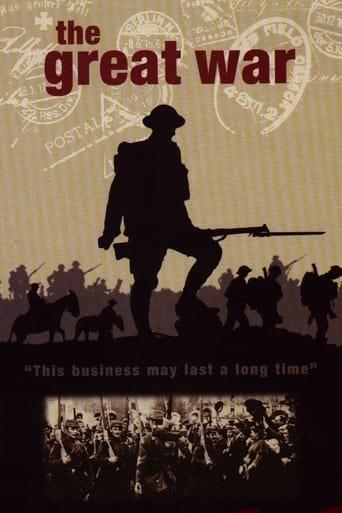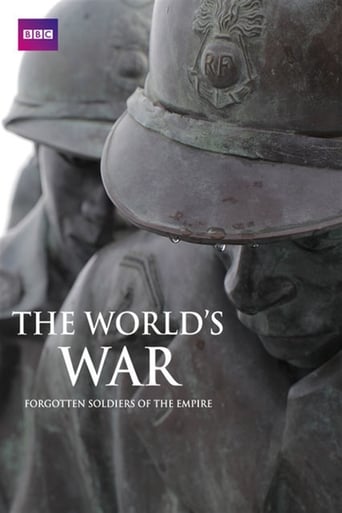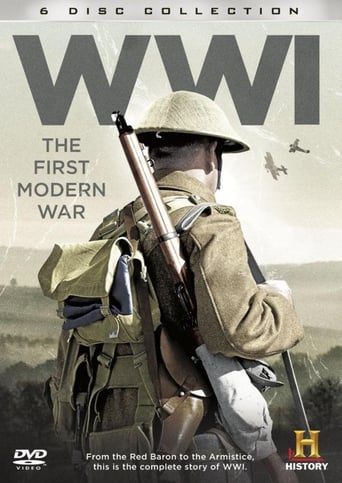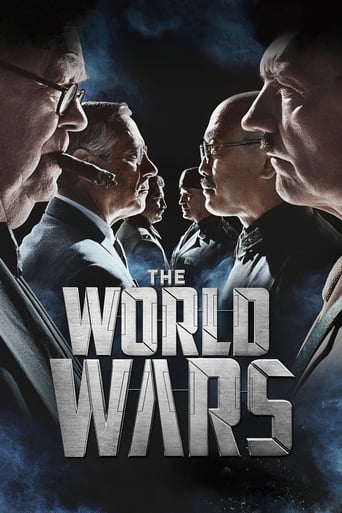The Great War (1964)
The Great War
1964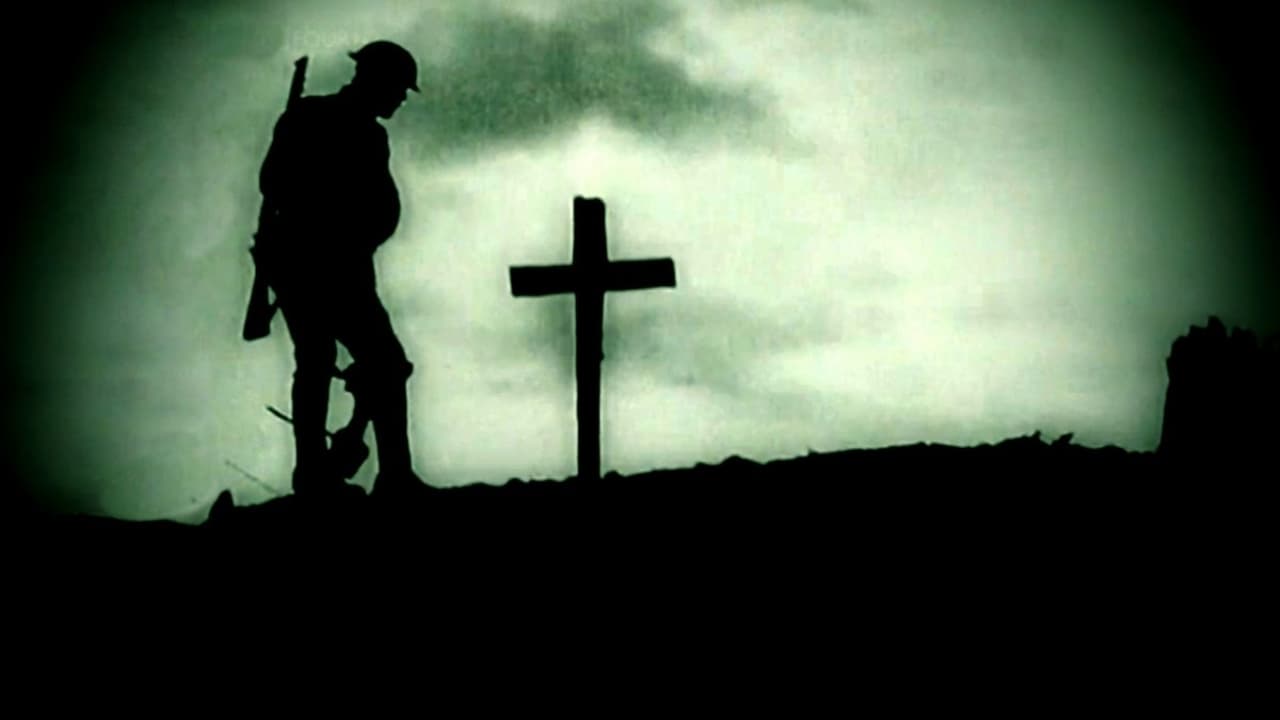
A milestone 26-part history of the First World War, conceived to mark the 50th anniversary of its outbreak.
Seasons & Episode

In 1914, the world was on the brink of enormous change. Worried by increasing German militarism, the French and the British entered into the Entente Cordiale against Germany and her allies, splitting Europe into opposing sides. Two shots would ignite the powder keg.

The assassination of the Austro-Hungarian heir Archduke Franz Ferdinand in June 1914 led to a breakdown in international diplomacy that ultimately led to war.

Following the declaration of war, the German army began to carry out one of the most famous military plans in history. Known as the Schlieffen Plan, its objective was to finish the war in 40 days.

How the British army fought its first battle at the Belgian town of Mons. Despite initial success, the British infantry were sent into retreat after two weeks. Yet as the Germans pressed forward to Paris, apparently invincible, French Commander-in-Chief General Joffre slowly began to build a more solid resistance – which would lead ultimately to Allied victory.

The Battle of the Marne in September 1914 ultimately proved to be a pivotal victory of the war for Allied Forces, but, at the time, they were not able to exploit it to bring a swift end to hostilities. Instead, both sides encountered the phenomenon of trench warfare. Culminating at Ypres late in 1914, the trench line stretched from the sea to Switzerland.

Attention turns to the battle of the sea. British confidence in the Royal Navy was to be shattered as it suffered defeats – the worst one at Coronel off the coast of South America on 1st November 1914.

In 1915, France and Britain struggle to keep up with the demand for shells and artillery, but Germany – the most modern industrial system in Europe – have no shortages, having smoothly switched over to war production and introduced the use of gas made by chemical factories. The Allies discover democracy and laissez-faire industry will not suffice if they are to regain ground.

As Minister of Munitions, David Loyd George was faced with a restricted industrial capability; Britain even imported materials from Germany in key areas. But with the help of US equipment, Lloyd George brought troops up to date, and by 1916 had transformed the armed services into a modern military power.

By Christmas 1914, the bloody impasse in the trench lines on the Western Front saw Lord Kitchener looking elsewhere for victory. In an attempt to sieze control of strategic Turkey, a British naval expedition advanced on the Dardanelles, and allied troops landed at Gallipoli with the aim of taking Constantinople. However, events did not go according to plan and, after 37 weeks, soldiers were evacuated from the beaches.

1915 brings little progress for the Allies, but a huge German offensive at Gorlice-Tarnow forces the Russians to retreat in the East. The Allied conference at Chantilly agrees on a strategy of simultaneous attacks upon the Central Powers in 1916.

One of the bloodiest battles in history, the fighting at Verdun continues throughout the year 1916. French and German forces suffer over 700,000 casualties.

Following Lord Kitchener's appeal in 1916, the British Army was reinforced by over two million volunteers. Despite the reservations of General Sir Douglas Haig, the new Commander-in-Chief, many of these mew recruits were sent to the scene of Britain's biggest military endevour – The Battle of the Somme.

The Battle of the Somme – which began in July 1916 and continued into February 19 – leaves 415,000 Brits in a muddy grave.

Both sides make heroic bids for victory – but what will they have to show for it?

The French Army is rallied for a great spring offensive – but mutiny looms when the plans fall foul of the Germans.

The future of the world is changed when America joins the conflict and the Communists come to power in Russia.

On the Western Front in 1917, the British fought alone for three-and-a-half months during one of the wettest summers Flanders has ever seen. The result was the horrific battle of Passchendale.

Russia's short-lived democracy is examined.

This episode recounts the war's terrible effects; not just the scale of the loss of life, but also the toll it took upon the human spirit.

Exploring how modern ideas of states' responsibility for their citizens grew out of the horror of "total war".

The story of the German offensive of March 1918, a desperate gamble to grab victory at a stroke.

As Allied troops fall back in confusion under a German counter-attack, they wait for the arrival of US reinforcements.

On 17th July 1918, an Allied counter-attack marks the beginning of the end for Germany.

Stalemate on the Western Front saw Allied generals look for victory via an alternative route – the Middle East.

Its allies beaten, Germany faces defeat alone.

Relief spreads throgh the ranks on all sides as history's bloodiest conflict finally comes to an end. With the Armistice now in effect, the Allied countries are overcome by a frenzy of joy and exultation.
A milestone 26-part history of the First World War, conceived to mark the 50th anniversary of its outbreak.
Watch Trailer
Free Trial Channels


